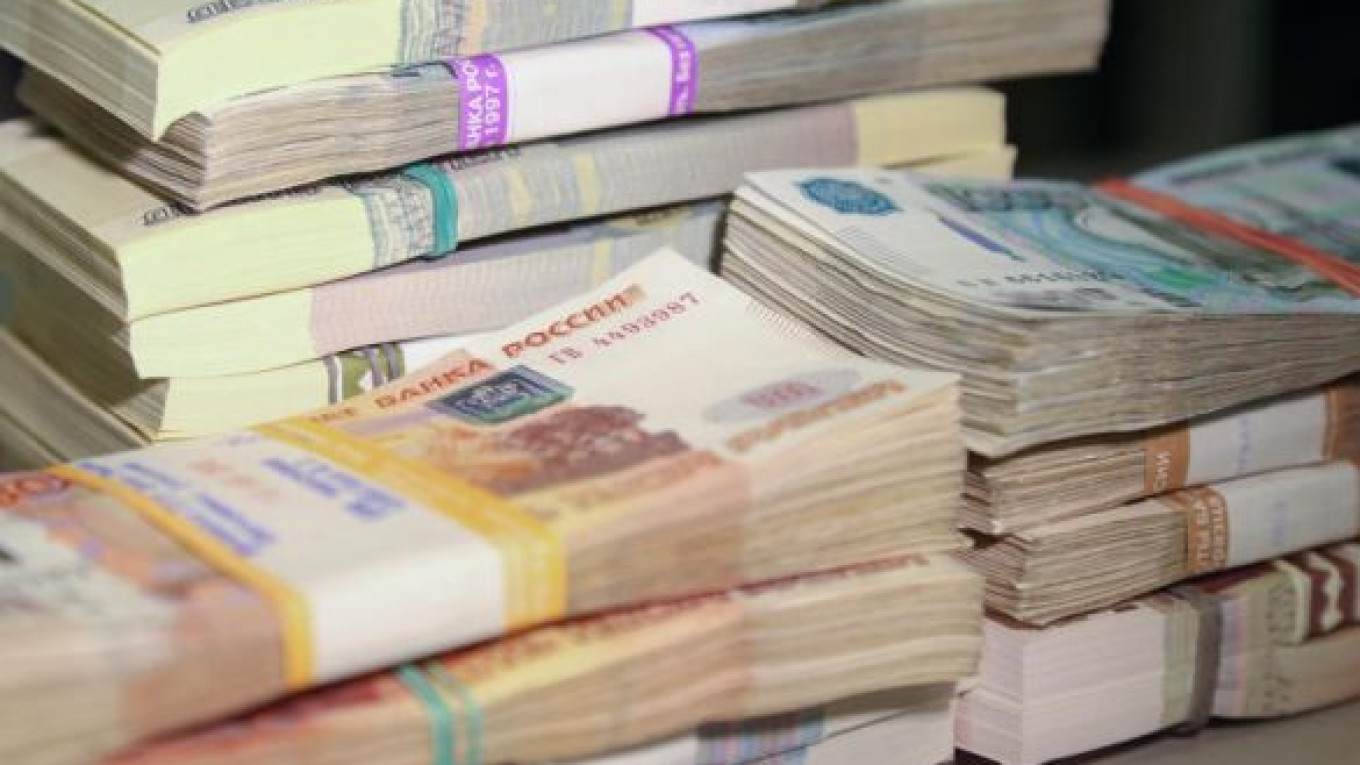The Central Bank said Friday that it had raised the upper limit for the ruble trading corridor by 25 kopeks for the second day as the currency continued to trade at historic lows.
The trading corridor, the bracket within which the regulator attempts to keep the ruble through market interventions, is now 34.2-41.2 rubles against the euro-dollar basket.
The regulator lifted the trading corridor's upper limit by 25 kopeks for the first time ever Thursday as the ruble continued the downward slide that has this year seen it depreciate by more than 6 percent against the euro-dollar basket.
The ruble is now trading at a historic minimum against the euro and a five-year low against the dollar.
The currency weakened further during Friday morning trading, after strengthening slightly late Thursday.
Experts expect the ruble to continue weakening, but said that the Central Bank had responded adequately to the challenges of the falling currency.
"The market has been testing the Central Bank's credibility in defending its floating corridor. Yet the regulator seems to have stuck to its currency policy regime," ING Bank analysts wrote in a note late Thursday.
The regulator spent 58.1 billion rubles ($1.7 billion) on Wednesday in efforts to stabilize the currency, Prime business news agency reported.
A weaker ruble means larger profits for Russian exporters and a state budget windfall, which is dependent on commodity exports. Officials have denied, however, that devaluation is a deliberate ploy to boost revenue.
"The ruble is continuing to fall," Mikhail Kasyanov, who served as a Russia's finance minister in 1999 in the wake of the country's 1998 devaluation of the ruble, said in a tweet Friday. "This is natural given such a level of capital outflow and the current account balance."


